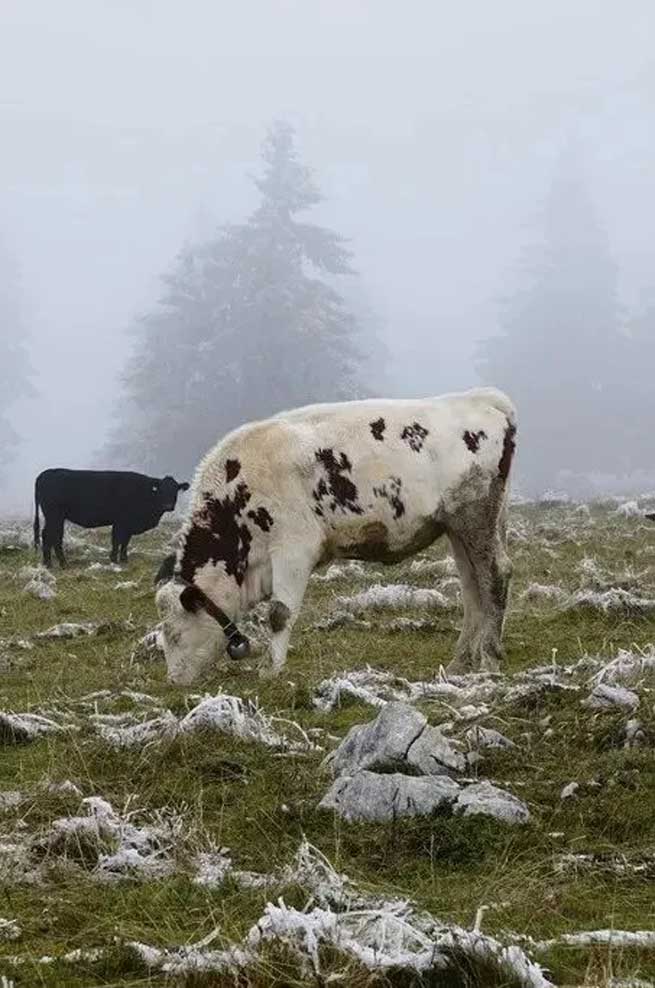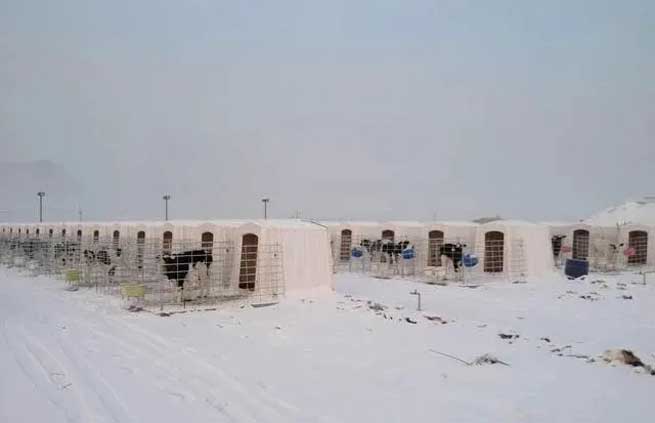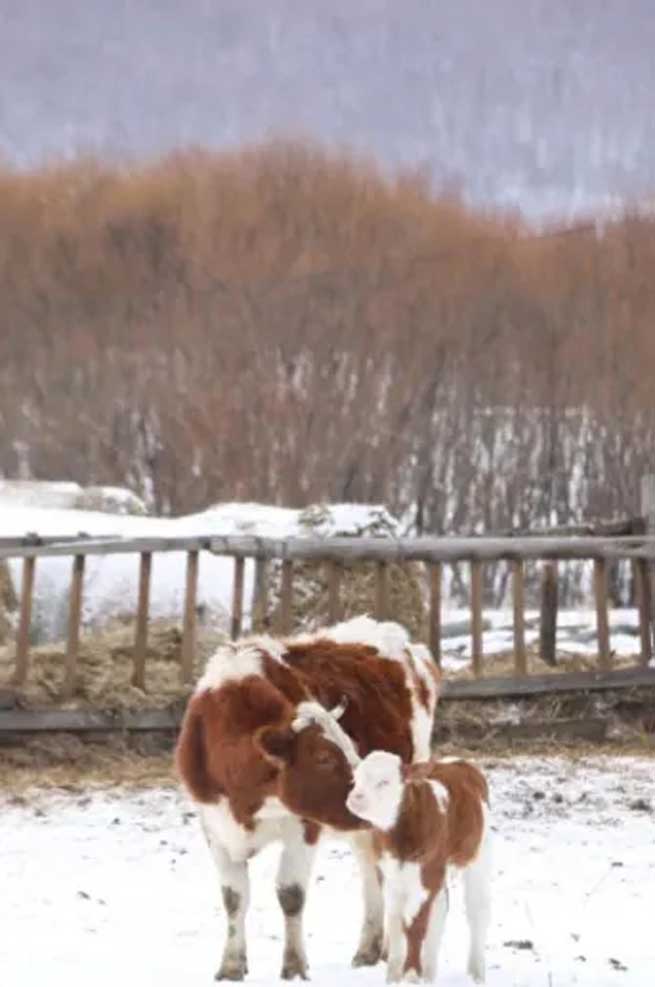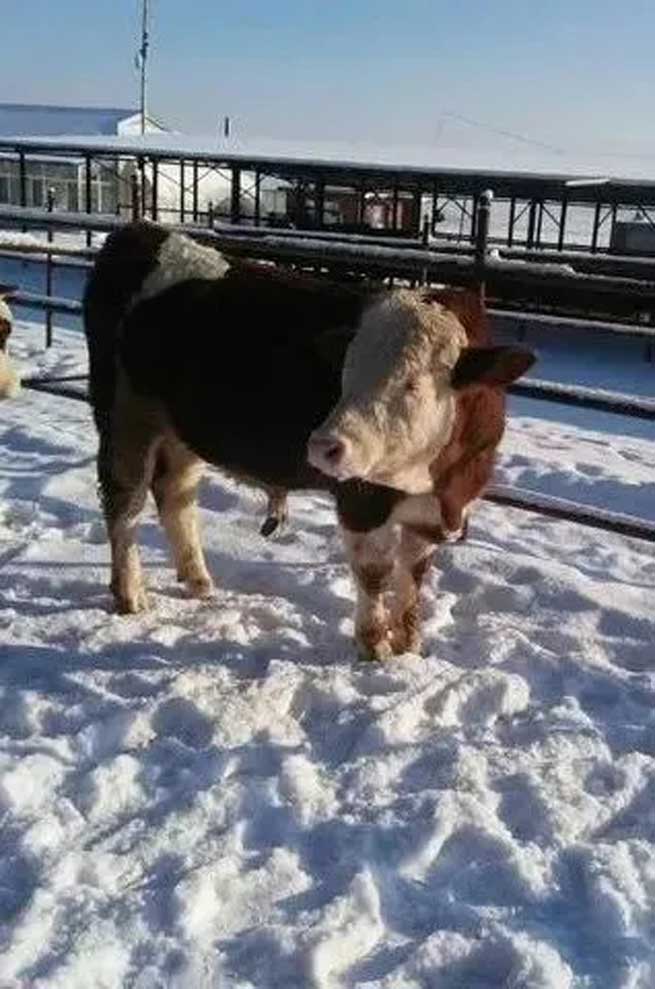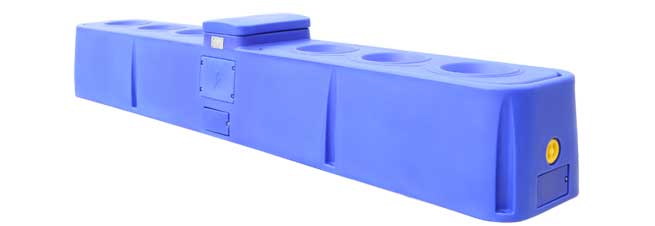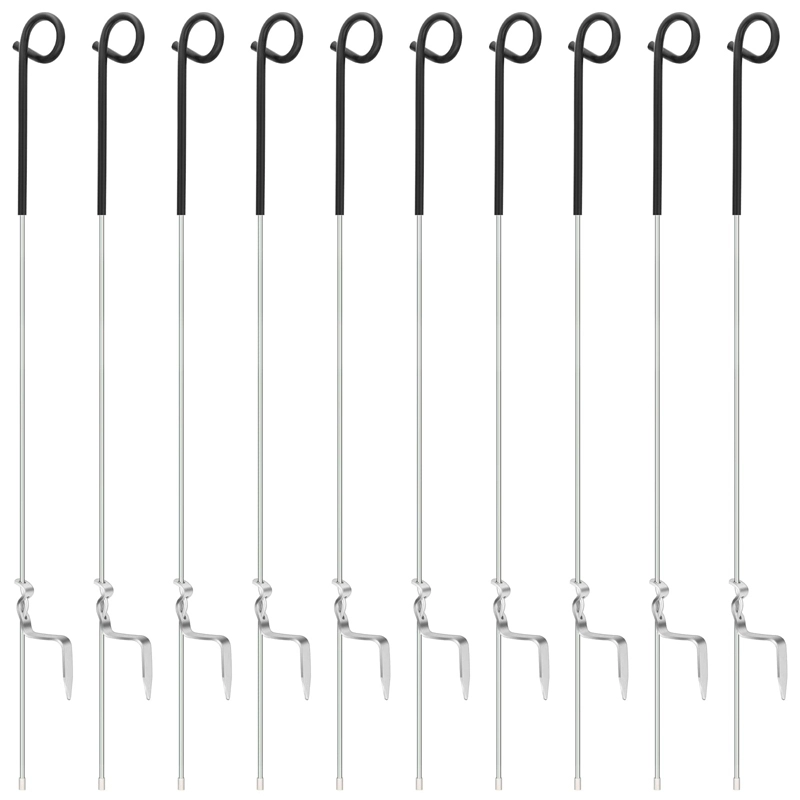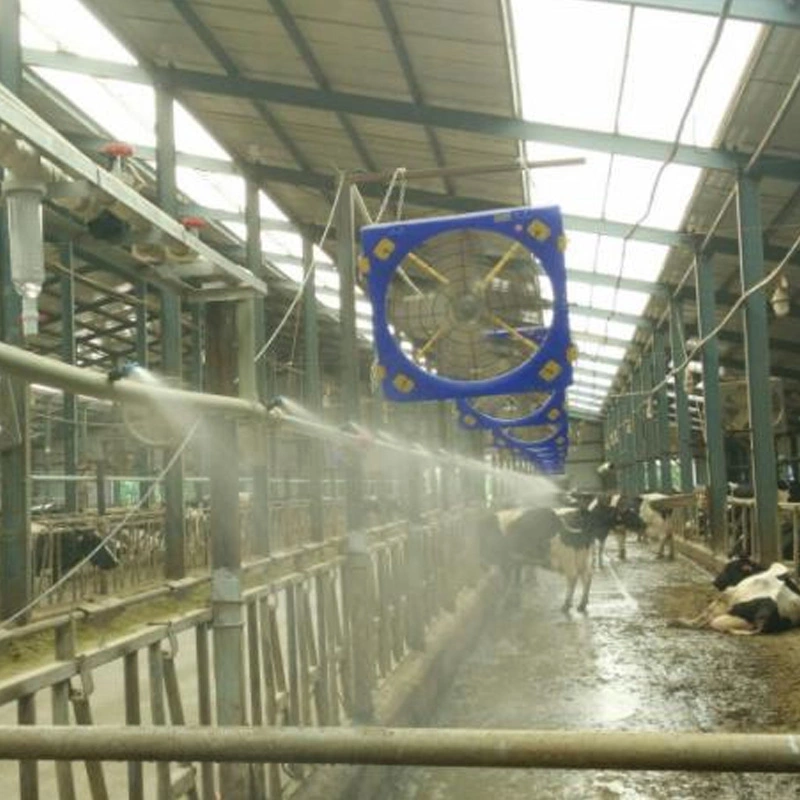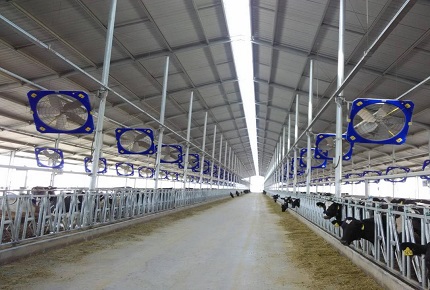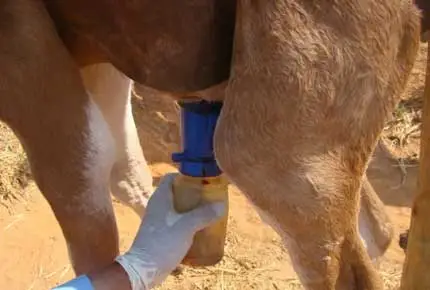Stress usually refers to the body reaction caused by frequent, long duration or short duration but drastic changes in the stimulation of animals. This reaction mainly changes the stability of the animal's internal environment, physiology and behavior. The non-specific changes caused by stress are called systemic adaptation syndrome, and cold stress is one of the stressors.
Dairy cows are heat-resistant animals, most suitable for feeding in cool climate conditions, hot summer will produce heat stress, cold winter, cows long-term exposure to cold and windy environment, will also cause cold stress of dairy cows, seriously affect the production performance and health of cows, especially for calves and new cattle will be more harmful. Therefore, the pasture should do a good job in winter cold prevention and warm management of cows, reduce the harm of cold stress to cows, and stabilize the normal production of the pasture
Effects of cold stress on dairy cows
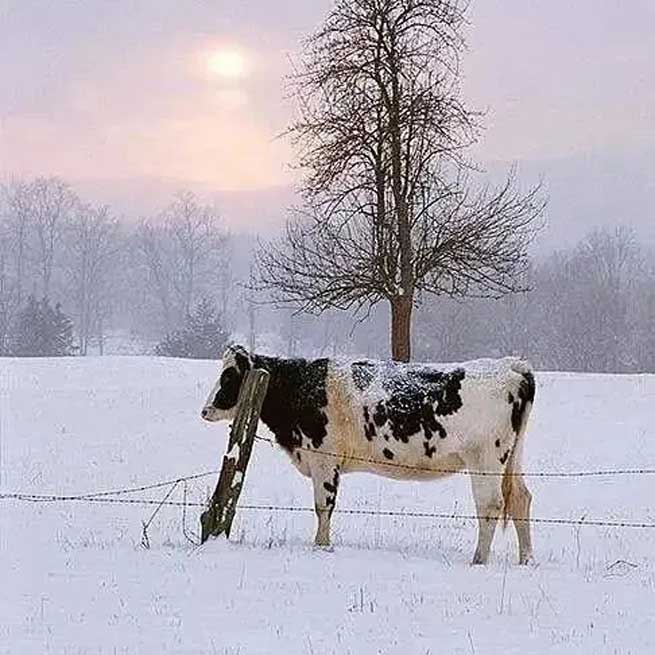
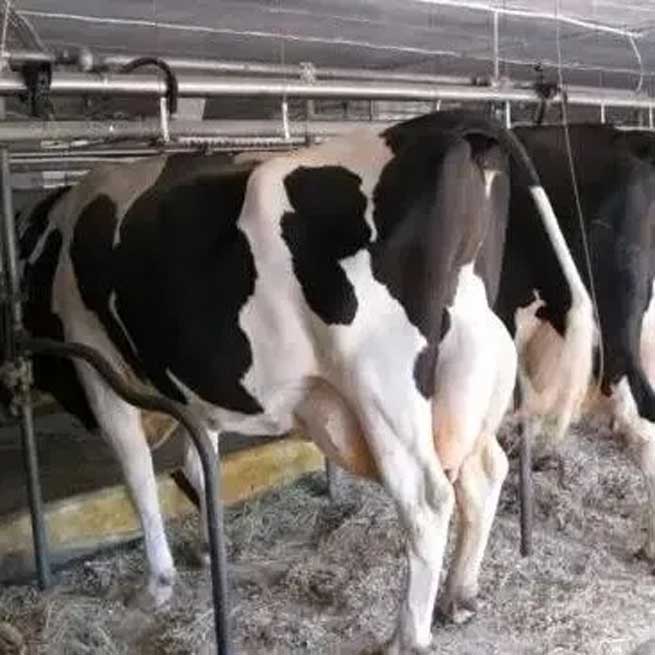
1. A weakened immune system
When cows are stimulated by cold, the nervous system, endocrine system and electrolyte balance will be disturbed, resulting in the decline of immunity of cows. The biggest impact of cold stress on dairy cows is the decrease of blood calcium concentration and white blood cell concentration, which leads to postpartum paralysis, fetal undergrowth, anterior gastric delay, metritis, mastitis and other diseases.
2. Milk production is down
In order to cope with the stimulation of low temperature, cows need to eat more dry matter or break down more energy and increase blood circulation, which is used to maintain a constant body temperature. In this way, the distribution of nutrients and blood required for milk production is relatively reduced, resulting in a decrease in milk production.
3. Hazard of trauma
In winter, the feces and urine of cows in the pasture are easy to freeze, resulting in uneven ground in the playground and the house, ice in the feeding channel, milking channel and drinking water channel, and easy slip when the cows walk or climb across the estrus, increasing the incidence of traumatic foot and hoof disease.
4. Frostbite of the breast
Increased risk of breast frostbite, unreasonable pasture bed design, low quality of bedding, poor comfort or improper finishing, these conditions will cause breast contact with frozen feces and urine, easy to frostbite nipples; Winter does not use antifreeze type medicine bath will increase the probability of breast frostbite.
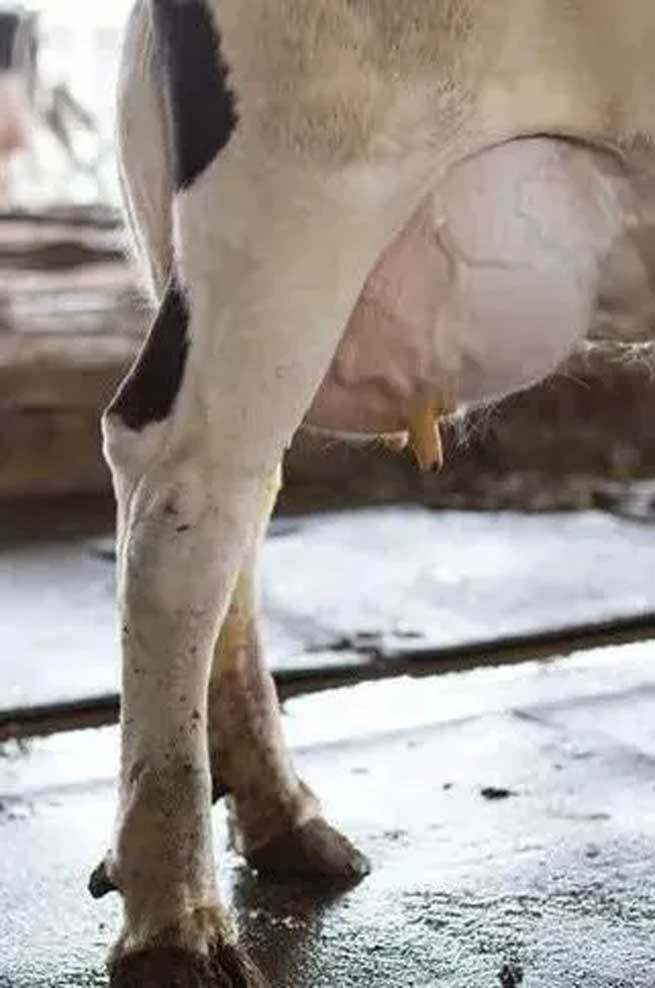
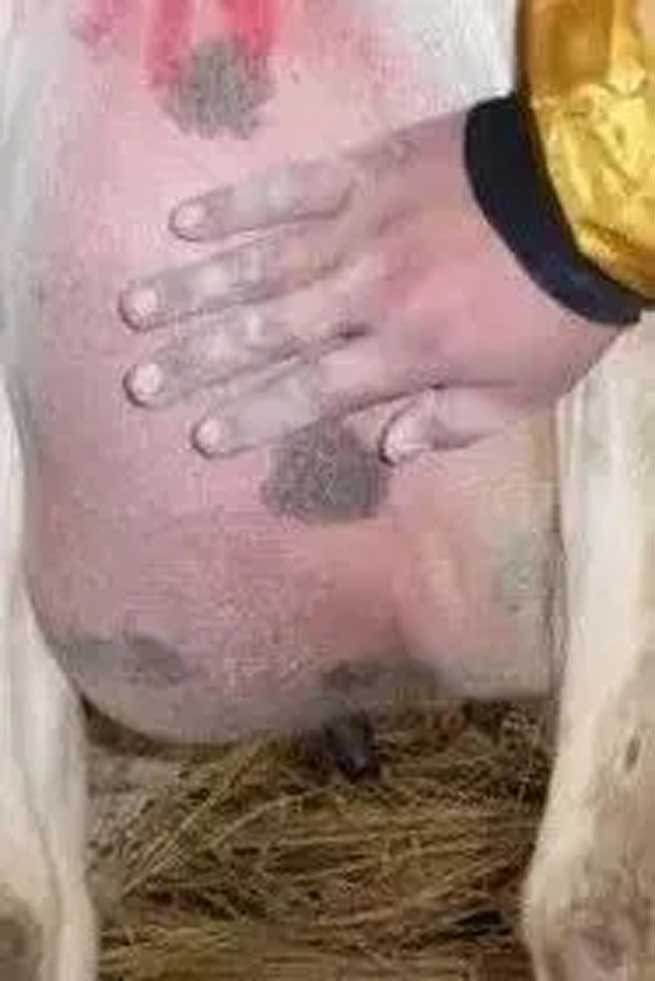
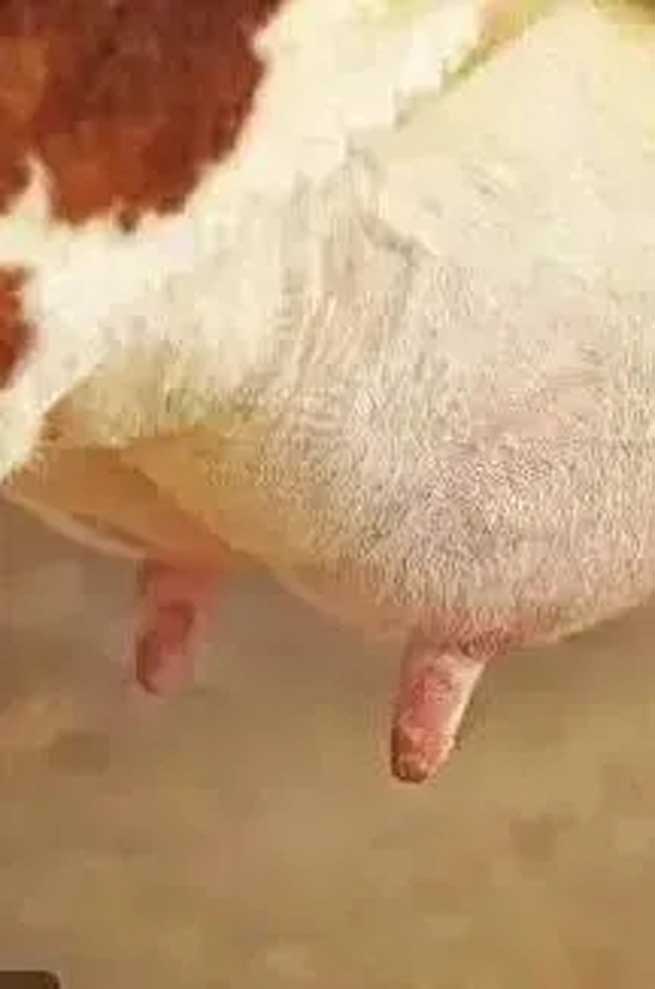
Preventive measures for cold stress in dairy cows
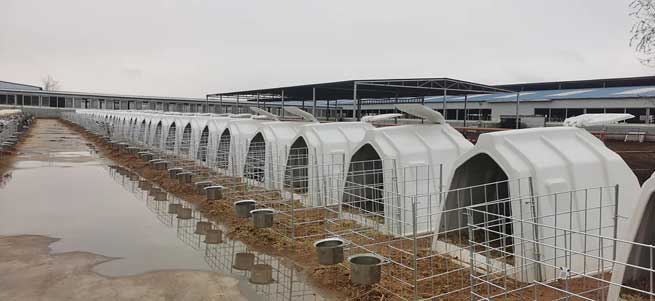
1. Do a good job of cow house management
(1) Check the cowshed, plug up the holes and air leaks, and close the doors and Windows with transparent plastic film.
(2) Clean the feces and urine in the feeding channel and bed in time every day.
(3) Check drinking water facilities to ensure adequate and fresh drinking water is available 24 hours a day, and the temperature of drinking water is maintained at 9 ~ 15℃.
(4) Arrange bed in time and change bed bedding material.
(5) In the heat preservation but also do a good job of ventilation, to ensure that the barn harmful gas does not exceed the standard.
2. Timely clean up the feces and urine in the milk hall, milking channel and the entrance and exit of the cattle barn. Lay rubber pads or sand pads in these places to increase friction and prevent cattle from slipping and injuring themselves.
3. Strengthen ventilation and heat preservation of cattle sheds; Maintain milking equipment to avoid excessive milking. Develop winter milking procedures and choose antifreeze medicated bath after medicated bath.
4. TMR management
(1) Feed TMR on the spot to prevent icing, and do not feed frozen, moldy and deteriorated feed.
(2) Improve the energy level of concentrate feed, which is generally 10% ~ 15% higher than the normal feeding standard, in order to meet the needs of cows to keep out the cold in winter.
5. Calf management
(1) Newborn calves should be dried in time and fed in a single stall with 20-30cm thick bedding grass, with heating facilities if conditions permit.
(2) Strengthen the ventilation of the calf house, increase the thermal insulation facilities, regular disinfection, timely replacement of bedding material, and maintain good environmental hygiene.
(3) Weaned calves should be kept at a reasonable feeding density and provided with adequate fresh warm water and high-quality forage and pellets.
Automatic electric heating constant temperature water tank is a better measure to deal with cold stress. After starting the temperature controller, it can automatically complete the heating and insulation function for 24 hours. Moreover, because of the existence of temperature sensor, when the water temperature inside the tank changes, it will be transmitted to the control cabinet in real time, and then the control system decides whether the electric heating belt should stop heating or continue heating.
The role of automatic electric heating constant temperature water tank in pasture:
1. The main function is to ensure the drinking water needs of cattle and sheep, because the automatic electric heating constant temperature drinking tank can realize automatic water, so that cattle and sheep drink water at any time.
2. Secondly, when entering the autumn and winter season, cattle and sheep can drink warm water at any time, which is good for the stomach and constitution of cattle and sheep.
 English
English  中文
中文  日本語
日本語  français
français  Deutsch
Deutsch  Español
Español  русский
русский  português
português  العربية
العربية 


